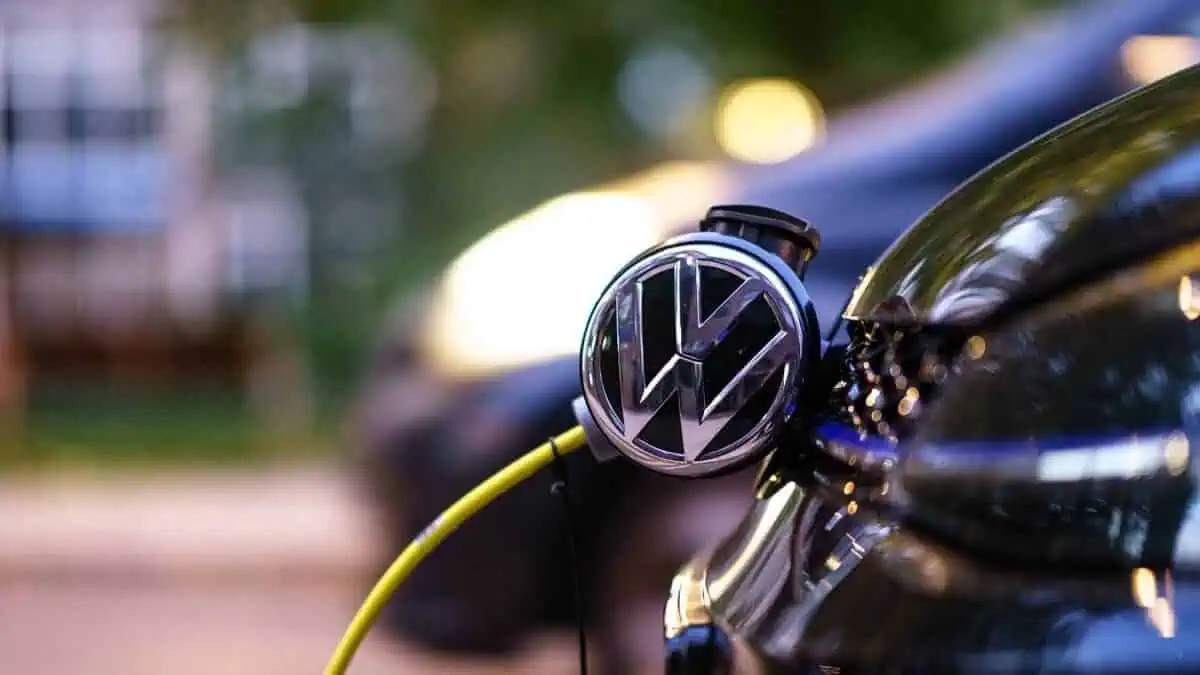German legacy automaker Volkswagen and its energy subsidiary Elli recently began trading on Europe’s biggest power exchange, EPEX Spot.
Remarkably, this significant development marks the first time an automaker was listed on the German electricity market.
How does it work?
For those wondering, VW and Elli will not directly leverage the company’s electric vehicle batteries for the necessary electricity. Elli will utilize stationary batteries in this case, with plans to gradually incorporate EV batteries as bidirectional energy carriers.
The “PowerCenter,” powered by the decommissioned VW e-up! batteries, operated by a new Elli trading platform, is at the center of its electrical exchange. It consists of 28 battery systems with 34 cell modules from the e-up! cars’ batteries, one of VW’s earliest EV models.
The concept is to acquire electricity at low prices and sell excess energy during its peak price, leading to high revenues and increased renewable energy consumption.
The company expressed a strong commitment to this new business, which aids VW’s mission to contribute to the global transition to sustainable energy.
“We want to make Elli the leading brand in the European energy and battery management business. Elli will significantly advance electric mobility and the energy transition.
We are already Europe’s largest mobility service provider in the field of charging and energy. We want to further expand this leading position and develop Elli into a leading trading company for battery flexibility. Electricity trading is a major milestone on this path. Our long-term goal is clear: We want to give our customers a clear advantage in terms of electricity prices and, at the same time, develop new, high-revenue business models that will strengthen Elli in the long term.”
Elli CEO Giovanni Palazzo
Apart from the old VW e-up! batteries, Elli also installed a “digital electricity trading platform.” The company explained the operation further:
“This is how Elli electricity trading works: The focus is on an intelligent platform for trading, controlling and optimizing batteries. Bids can be automatically placed on the stock exchange via the platform. The trading results are translated into a timetable and the battery is automatically charged or discharged. Electricity is purchased during periods of low prices (with a tendency towards a high share of renewables) and sold during periods of high prices (with a tendency towards a low share of renewables). As a result, not only can trading revenues be generated, but a better use of renewable energies can also be achieved. The stationary battery storage uses 28 battery systems and 34 e-up! cell modules.”
Volkswagen Group explained in a press release
All that said, energy trading will certainly play a crucial role in the Group’s overall business.
See Also:
- Volkswagen AG operates Europe’s greatest charging network with Elli
- Volkswagen follows automakers in selling China-built EVs in Europe by 2024
- Tesla to start selling electricity to Britain households
- Solar power to become the cheapest source of electricity, DNV forecasts
- What is the source of electricity for Electric Vehicles?
This pilot project enables Elli to learn more that may aid the company in establishing a smart energy platform for wider applications.
In that sense, Elli apparently collaborated with battery giant PowerCo to study large-scale storage systems’ scalability.
The company expects to incorporate VW’s EVs into the energy grid via Vehicle-2-Home and Vehicle-2-Grid, or even be used as a mobile power bank.






